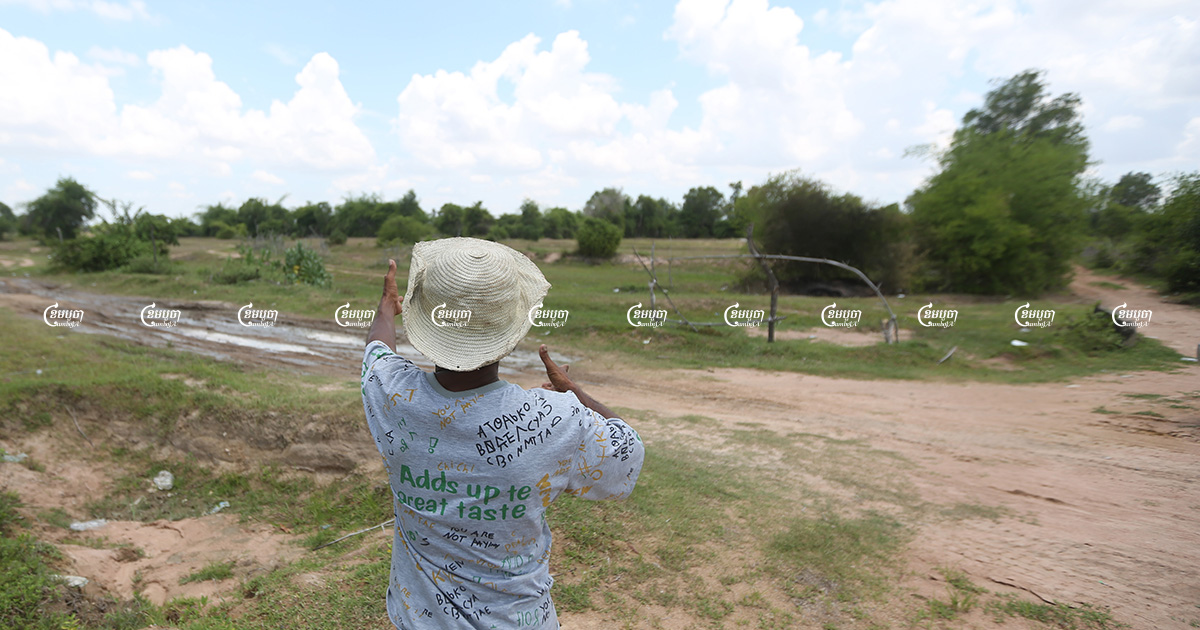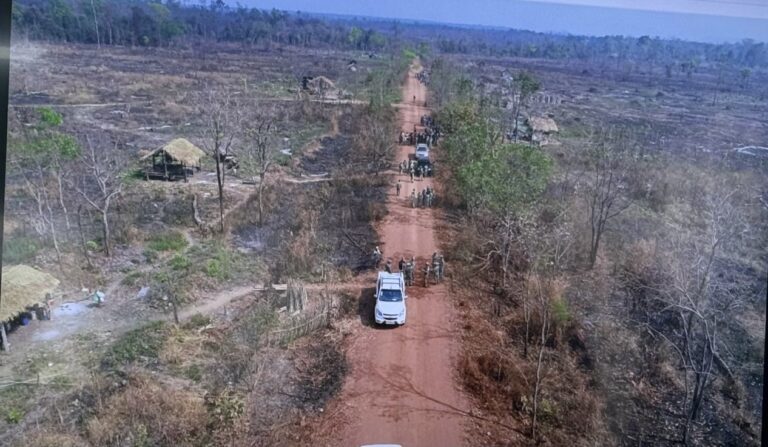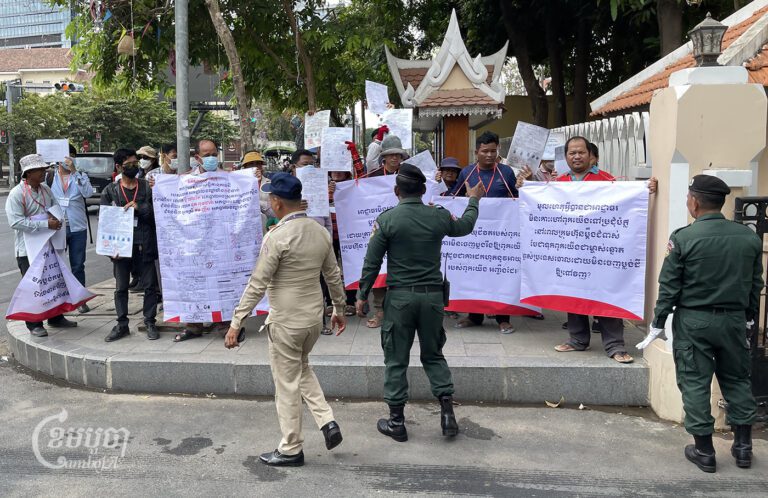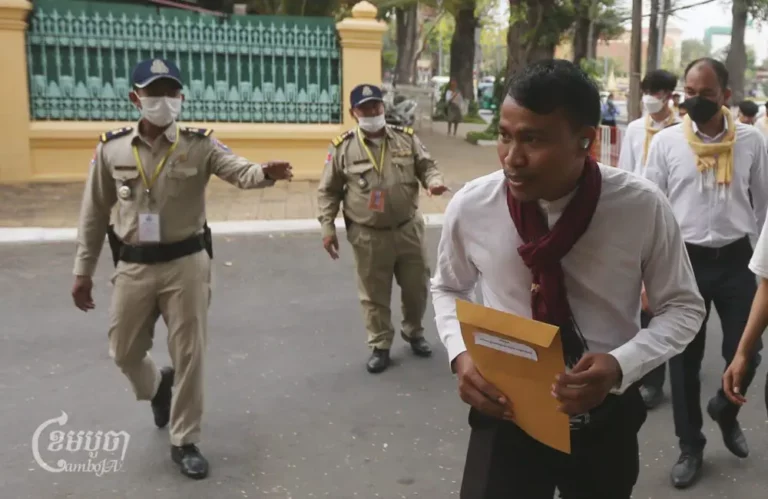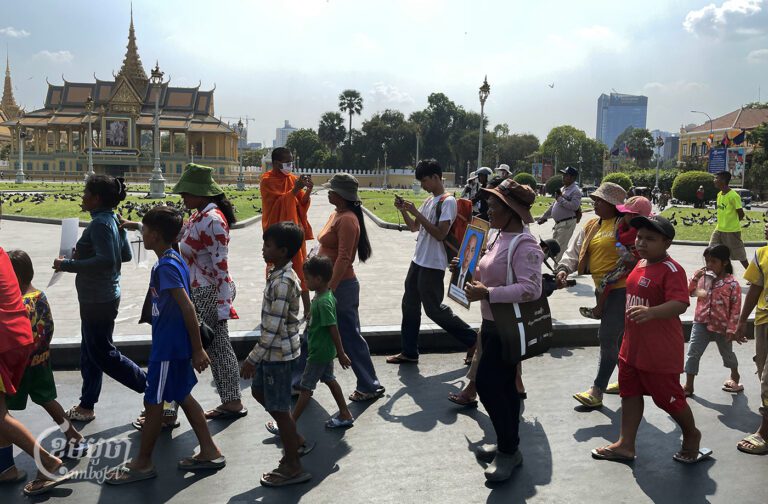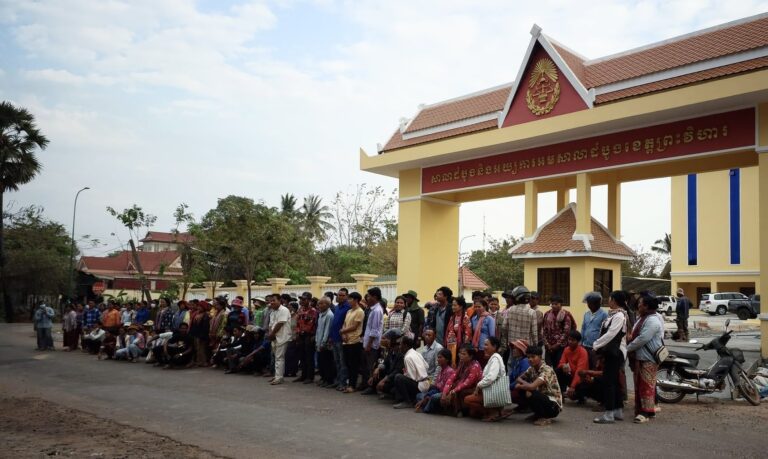More families affected locked in land disputes with the Ministry of Defense in Kandal province’s Ang Snuol district have been forced to accept what they maintain is inadequate compensation for their land, saying that authorities have threatened that they will get nothing if they keep refusing.
Deputy Ang Taseth village chief Pann Phan, who received $2,000 in compensation for his 0.60 hectare plot of land this month, said that he had no choice but to take the sum that was offered — even though he says it is not enough for him to buy farmland elsewhere.
“They told me that in the name of the village chief, I must accept first so villagers will follow,” he said. “They blamed the villagers who refused to accept because of me. I met with district authorities many times, but this time they forced me to accept, and blamed me for not understanding the work process.”
Villagers from seven villages in Tuol Pich commune in Ang Snuol district have been locked in a conflict with the Ministry of Defense over 280 hectares of land since late 2020, when soldiers began banning people from farming the land. During a protest in June, soldiers opened fire on a group of villagers, injuring one person.
Phan told CamboJA that of the 70 families in Ang Taseth village, about 40 households are not accepting compensation. He said that those who refused to accept were reportedly waiting for word from Prime Minister Hun Sen to clarify that the land would be used for the interests of the state.
Minh Loun, a villager from Kuol village who has refused the compensation, said that although more than ten families in the village had taken the compensation, her family would not be one of them.
“How can I accept this price, because I have no land anywhere else, and they are offering a very low price,” she said. “I now owe the bank and the compensation will not be enough even to pay the interest rate.” Loun said she had been offered more than $4,500 for her over one hectare of land.
“I borrowed money from the bank for raising pigs, but now all the pigs died,” she said. “So I already had to sell half of my land to pay my debt. I now rely on children who work as garment workers.”
Pin Seun, another Ang Taseth local, said that district authorities called him and a few other people to talk about the compensation this week, but he refused, saying that he was worried they would be forced to accept the compensation.
“So far, I have still refused to accept the price,” he said. “I have been living here for a long time, but they only compensate us for the cost of crops within the last four years. Families who agreed to accept the compensation did it because they are afraid of getting nothing in the end, but for me, I don’t worry about this, and I will continue to demand a reasonable offer.”
Kandal provincial Governor Kong Sophorn told CamboJA last week that the state has the right to the land and if the people do not agree, the state will take it anyway. He said the government’s offer is already too much for the cost of crops.
Tuol Pich commune council chief Chuong Khem told CamboJA that about 170 families out of 320 had already received the compensation.
“It is their decision, we the local authorities have no right to force them, we just help them to find the solution,” she said. “Everyone recognizes that it is state land, and the top-level authorities just inform them that based on state policy, they cannot offer more than this.”
Soeng Senkaruna, a senior investigator at rights group Adhoc, said that the state should provide a reasonable compensation that would allow villagers to buy land nearby.
“The use of coercive means is not a solution, and for those who agreed, perhaps they were afraid of not receiving compensation at the end and other problems that may happen to them if they refused,” he said. “Compensation only for the cost of crops is unfair for the people, as they had been occupying the land for a long time, so the state should not just deal with the crops.”


